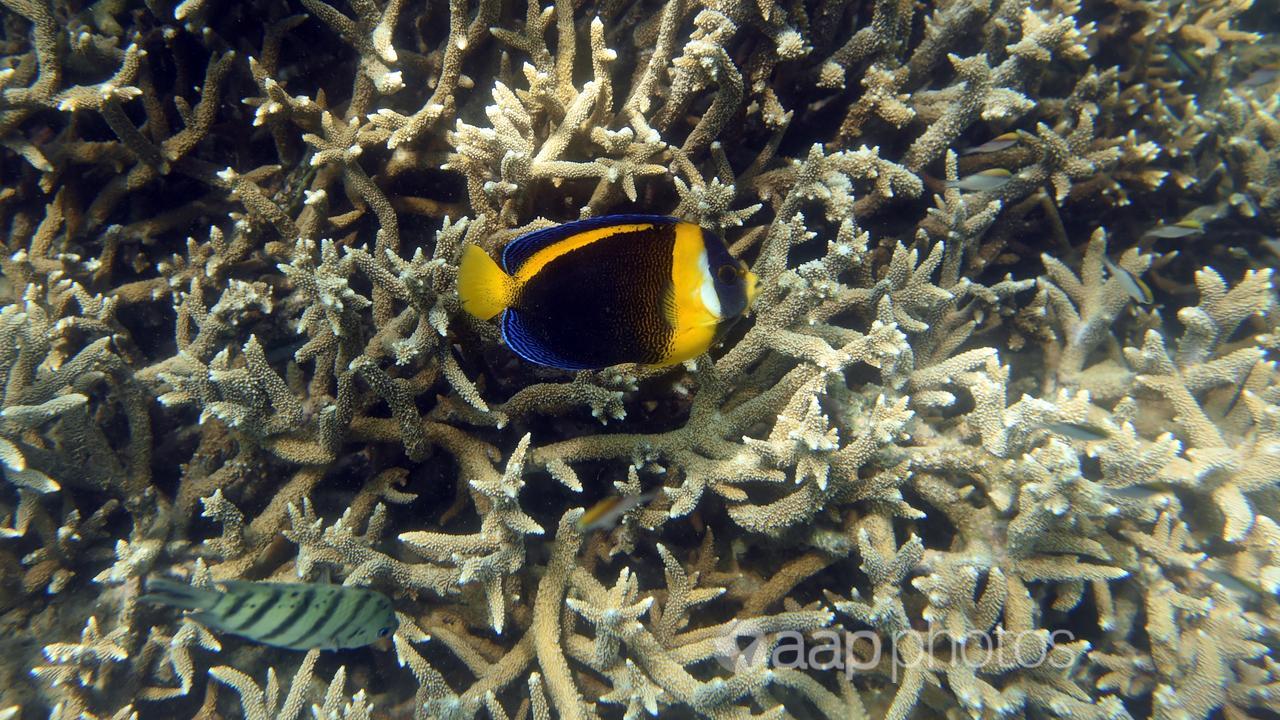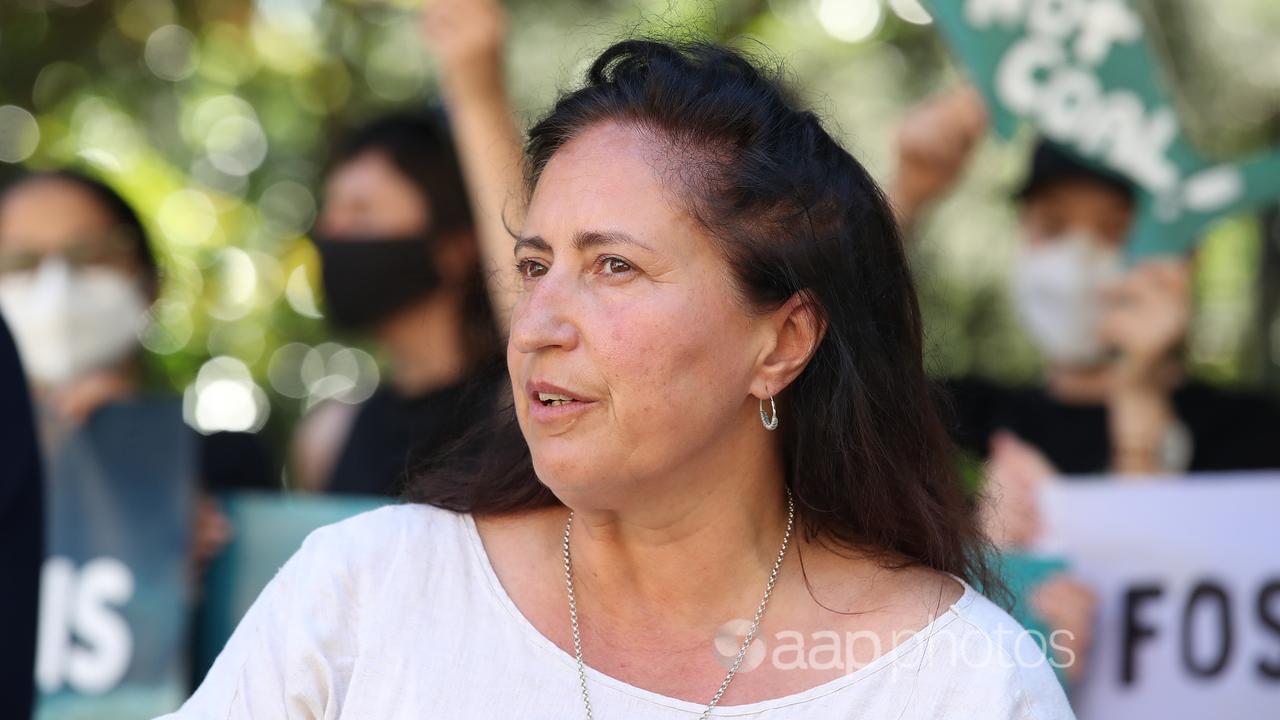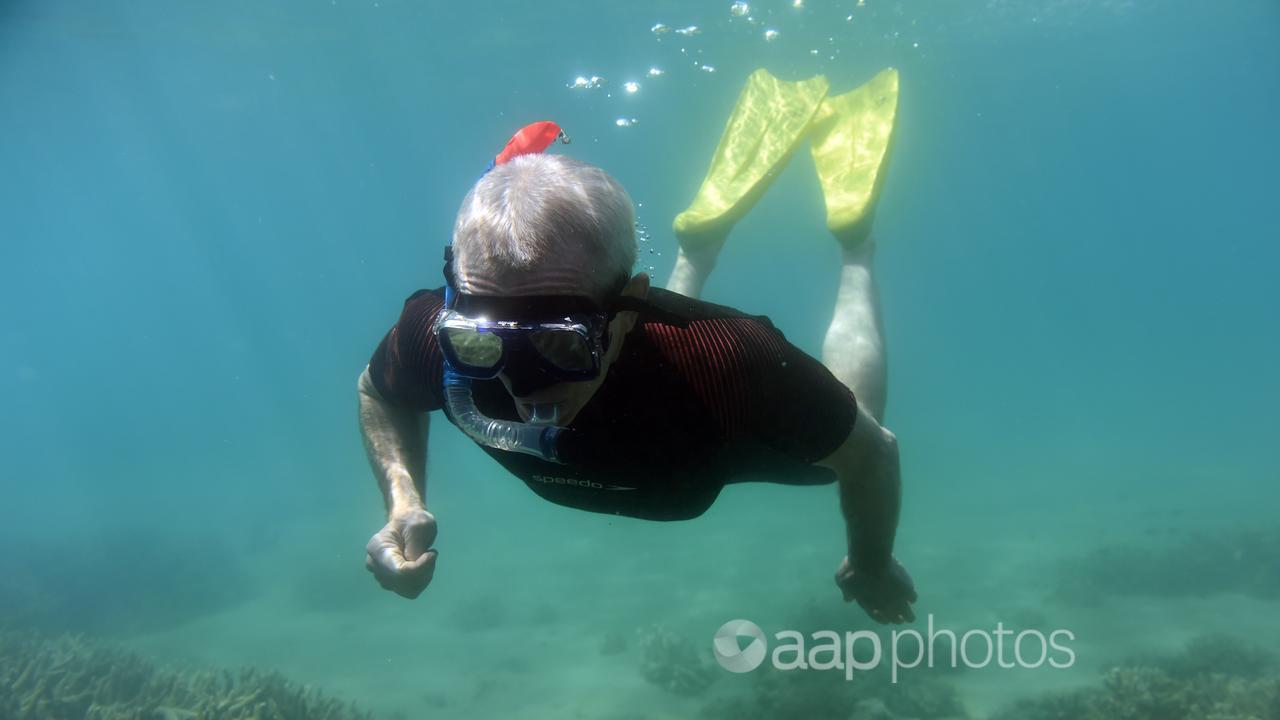The Great Barrier Reef is enduring its fifth mass bleaching in eight years, but a senator says the world’s largest coral system is fine and that bleaching is just part of a natural cycle.
This is false. Experts told AAP FactCheck the frequency and severity of mass bleaching events are unprecedented and directly linked to human-induced climate change.
One Nation senator Malcolm Roberts made a series of claims about the reef in the Senate in March 2024.
The Queensland-based politician said the suggestion the reef was dying was an “old, debunked scare” designed to take money from “hardworking Australians” and give it to “parasitic billionaires” to fix the climate.
“Scientific records show that bleaching has been a natural part of the Great Barrier Reef’s cycles and other reef cycles for millennia,” he said. “That is fact.”
AAP FactCheck asked Senator Roberts to provide evidence to support this supposed fact, but did not receive a response.
Reef experts have rubbished his claims, telling AAP FactCheck the current level and frequency of bleaching is unprecedented and undeniably linked to human-induced climate change.
Selina Ward, an expert at the Centre for Marine Science at the University of Queensland, said nothing about coral bleaching suggested it was a natural cycle.
The first mass bleaching event was documented in 1998, before repeated events in 2002, 2016, 2017, 2020 and 2022.
It was confirmed in March 2024 that the reef was experiencing its fifth such event in eight years.
Dr Ward said there was no evidence of earlier mass bleachings in coral skeletons.
“These corals can grow for many hundreds of years and cylinders of skeleton can be drilled out of the corals and examined for this sort of evidence,” Dr Ward said.
“Bleaching events can be detected in recent corals, but not in earlier times.”
She said there was also no evidence from early colonial settlers or local Indigenous communities of any widespread historical bleaching.
“There were no words in languages to describe them,” Dr Ward said.
“Bleaching events are very obvious to people around reefs. They are glowingly white or fluorescent colours, so hard to miss.”
Dr Ward said multiple studies had established the clear link between rising sea temperature and bleaching, examples here, here, here and here.

Professor Will Figueira, director of the One Tree Island Research Station in the Great Barrier Reef, agreed the claim was false.
“(The claim) implies then this person does not believe anthropogenic CO2 emissions are linked to the massive increases in air and water temperatures we are seeing,” Prof Figueira told AAP FactCheck in an email.
“You just need to look at the latest (or any really) IPCC reports to see this is not the case. These represent the most exhaustive summary of all available evidence on that topic.”
Emeritus Professor Terry Hughes, from James Cook University, told AAP FactCheck the claim was “complete nonsense”.
Writing in The Conversation in March, Prof Hughes said bleaching had “increased in frequency, severity and spatial scale, as a result of human-induced climate heating” over recent decades.
He said the recent bleaching was “entirely predictable” given the continued increase of ocean temperatures.
The three experts told AAP FactCheck the suggestion the reef was in good health was also false.
Some people, including Senator Roberts, point to the extent of coral coverage to support their claim.

Prof Figueira said this was highly misleading, explaining the reef was losing more robust, old corals which were replaced by fast-growing, vulnerable corals.
“A somewhat crude but effective analogy is if we assessed the health of the forest ecosystem by the amount of the ground covered by some sort of vegetation,” he said.
“If you cut down all the trees, you’d have lots of quick-growing shrubs and such grow up and would likely have more of the ground covered … but nobody would reasonably argue such a system is a healthy example of a forest.”
Although Senator Roberts did not respond to AAP FactCheck’s request for supporting evidence, he did cite a University of Sydney study in his Senate speech.
However, study co-author Professor Jody Webster told AAP FactCheck the paper in no way supported his claim.
“Our study doesn’t look at bleaching at all,” he said. “We’re assessing reef growth after many different environmental conditions.
“There are cycles for reef growth that occur over 20,000 to 30,000 years, not in the timescale that Senator Roberts is suggesting.”
The Verdict
The claim coral bleaching has been a natural part of the Great Barrier Reef’s cycles for millennia is false.
The first documented mass bleaching event occurred in 1998. This year’s bleaching is the fifth in eight years. Multiple studies show a direct link between increasing water temperatures and coral bleaching.
There is no evidence of historical mass bleaching, either from coral skeletons or records from Indigenous people or early colonial Australia.
False – The claim is inaccurate.
AAP FactCheck is an accredited member of the International Fact-Checking Network. To keep up with our latest fact checks, follow us on Facebook, Twitter and Instagram.
All information, text and images included on the AAP Websites is for personal use only and may not be re-written, copied, re-sold or re-distributed, framed, linked, shared onto social media or otherwise used whether for compensation of any kind or not, unless you have the prior written permission of AAP. For more information, please refer to our standard terms and conditions.


















